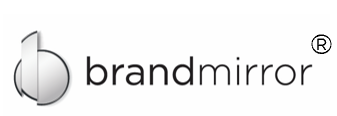November brings Thanksgiving, which is a good time to reflect on gratitude. There’s a lot to be gained from being as expansive as possible on the subject. After all, gratitude is about taking stock, expressing appreciation, and giving back. When it comes to leadership, the power of gratitude cannot be overstated, and it is a practice that takes multiple forms and builds on itself. As we each reflect on the year and how we showed gratitude, here are a few ways to take our gratitude up a notch.
Start With “Thank You”
Leadership styles vary, but research shows that two-thirds of employees would leave their job if they felt unappreciated, so finding a way to convey thanks is critical to retention. Team members want their leaders to notice their efforts, and it doesn’t take much to acknowledge with appreciation. For completion of assignments to professionalism, loyalty, innovation, and more, try to develop and maintain a habit of using those two simple words. Remember that people have different ways of valuing the way someone says thank you. Some individuals value a handwritten note, others may need something more to feel truly appreciated.
Show Them How It’s Done
Gratitude in the workplace can be cultural. Making gratitude a practice for everyone to see fosters this behavior in others. Leadership by example applies to expressing thanks as much as anything else. It’s worth copying the team on an appreciation email, making a point to say thanks during meetings, and otherwise letting team members know both how leadership feels about the team, and how the team should be interacting with each other. If this is an area of opportunity for your organization, consider adding it to the executive development plan. From the CEO down, leading by example and setting clear expectations around the values that matter to an organization, including gratitude, can shift the culture of an organization.
Planned & Spontaneous Gratitude
Regular thanks at expected times should be a matter of course. End-of-year bonuses, holiday parties and gifts, and positive feedback during reviews should be a part of every leader’s repertoire. People have come to expect these gestures as part of their employee experience, and they will feel the lack sharply. On the other hand, random gratitude is as important, if not more so. Unexpected team outings, a gift on an unconventional holiday, or a simple lunch can go a long way towards making a team feel specifically appreciated. While they may feel spontaneous to the team, don’t forget to be systematic and organized for a successful recognition program.
Giving to be Thankful
Thanks and appreciation are more than words to express to the team or an appreciation program. For gratitude to truly be a part of the culture, put it in a context bigger than the workplace. Volunteer days, corporate donations, and other acts of giving back to the community help make an organization be mindful of its part in being a force for good. Letting the team have an active role through selecting charities and getting credit for community service helps public relations while empowering individuals and fostering gratitude.
As we count the ways we are blessed this holiday season, we can be intentional, authentic, and mindful in our gratitude at work and beyond. Research by two psychologists, Dr. Robert A. Emmons of the University of California, Davis, and Dr. Michael E. McCullough of the University of Miami, show that gratitude can change our outlook for the better (Harvard Health Publishing). As leaders, each of us can create a positive culture based on our own actions, and now is a great time to self-assess where you may find ways to improve. What would taking your gratitude up a notch look like?
Lead by example,
Jen Dalton
Jen Dalton is a personal brand specialist with entrepreneurship in her DNA. Her book, Listen: How To Embrace the Difficult Conversations Life Throws at You, is an insightful guide into navigating tough talks. She helps business owners and executives define how they show up as leaders, make the most of their strengths, and tend to their legacy, growth, and visibility. The author of two books, frequent speaker, podcaster, and “Purpose Sherpa,” Jen is a critical resource for any person or company that wants to define their brand and differentiate themselves in authentic, credible, and relevant ways to the market. brandmirror.com
Lipman, Victor. “66% Of Employees Would Quit If They Feel Unappreciated.” Forbes, 15, August, 2017. https://www.forbes.com/sites/victorlipman/2017/04/15/66-of-employees-would-quit-if-they-feel-unappreciated/?sh=fcae25868979.
“Giving Thanks Can Make You Happier.” Harvard Medical School, Harvard Health Publishing, 14, August, 2021, www.health.harvard.edu/healthbeat/giving-thanks-can-make-you-happier

